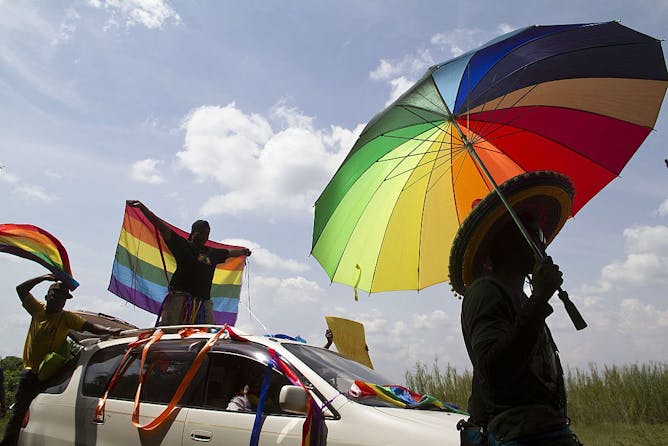|
Eyebrows were raised in the Global South recently when the World Bank announced it was freezing loans to Uganda following the passing of a draconian new anti-gay law. The quizzical looks were because the bank isn’t known for taking positions on social justice issues. In fact, it’s come in for a great deal of criticism for making decisions that hinder, rather than help, people. So what’s changed? Danny Bradlow cautions that the Uganda decision shouldn’t be read as a sign that the bank is fundamentally changing its approach. And explains why.
You can also read about:
|

Danny Bradlow, University of Pretoria
The challenge is to ensure that the Bank is making decisions on a principled and predictable basis.
|

Laurie Mintz, University of Florida
Women have fewer orgasms than men. But this gap is cultural, not biological. Closing it is possible, both on a societal and personal level.
|
|
|
-
Kevin Hamilton, University of Hawaii
Projections for Hawaii’s climate future are raising concerns about fire risk, ecosystems and freshwater supplies for homes and agriculture.
-
Imrana Buba, University of Oslo
Civilian protection payment is not a sustainable self-protection strategy in north-west Nigeria.
-
Darryl K. Brown, University of Virginia
Trump has trial dates set for two of his four criminal cases at the state and federal level. But, generally, state and federal prosecutors will coordinate to make sure that their dates don’t overlap.
-
David L. Haberman, Indiana University
At the pilgrimage site of Kedarnath in northern India, disastrous flooding has led many to ask whether the gods are getting angry about human behavior.
-
Euan Nisbet, Royal Holloway University of London
The last time methane in the air rose so fast, Greenland warmed by 10°C within decades.
-
Susan Walker, Anglia Ruskin University
Contraception today may not be perfect but it’s better than methods of the past.
|
|

Sarah Bailey, University of Bath
Clinical trial funders now insist studies use female participants. But it will still take a long time for our understanding of how medicine affects women to catch up.
|